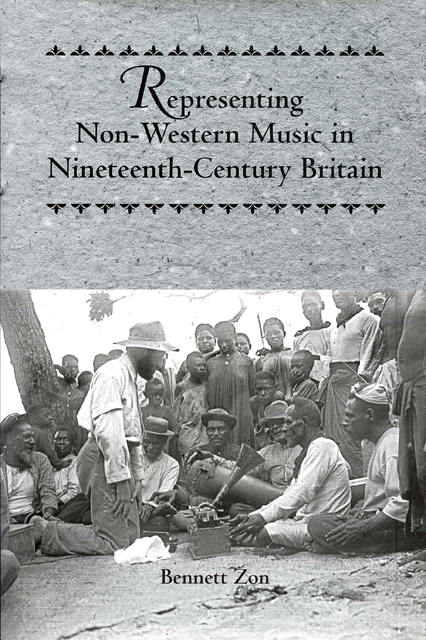Book contents
- Frontmatter
- Dedication
- Contents
- List of Illustrations
- Preface
- Acknowledgments
- Introduction Humanizing the Musical Savage: Orientalism and Racism in the History of British Ethnomusicology
- Part One Early Anthropological Influences
- Part Two Musicology in Transition to Evolution
- Part Three Individualism and the Influence of Evolution: Charles Samuel Myers and the Role of Psychology
- Part Four Retaining Cultural Identity: A. H. Fox Strangways and the Problems of Transcription
- Epilogue The “Ethnomusicology” in Long Nineteenth-Century Representations of Non-Western Music
- Works Cited
- Index
- Eastman Studies in Music
Chapter Six - Non-Western Music in General Music Histories: Progression toward Evolution
Published online by Cambridge University Press: 10 March 2023
- Frontmatter
- Dedication
- Contents
- List of Illustrations
- Preface
- Acknowledgments
- Introduction Humanizing the Musical Savage: Orientalism and Racism in the History of British Ethnomusicology
- Part One Early Anthropological Influences
- Part Two Musicology in Transition to Evolution
- Part Three Individualism and the Influence of Evolution: Charles Samuel Myers and the Role of Psychology
- Part Four Retaining Cultural Identity: A. H. Fox Strangways and the Problems of Transcription
- Epilogue The “Ethnomusicology” in Long Nineteenth-Century Representations of Non-Western Music
- Works Cited
- Index
- Eastman Studies in Music
Summary
The same methodological features one observes in anthropological literature about music is found in work of a strictly musicological kind, principally because the same material is being used in both types of literature at roughly the same time. Unsurprisingly, early general histories of the period from the 1820s rely heavily on travel literature, and as such, evince all the characteristic ideologies of the genre. Among the earliest nineteenth-century histories of music to include reference to non-Western music is William Stafford’s A History of Music (1830). As Joep Bor says, Stafford’s book is remarkable in devoting almost a third “to the music of the ancients and non-Western nations: Egypt, India, China, Persia and Turkey, the Arab world, the Hebrews, the Burmese, Siamese and Singalese, Africa, America and Greece.” The remainder explores Continental and English music in roughly equal amounts, a feature peculiar to Stafford’s book. Generally speaking, however, non-Western music registers very little in broad histories of music even up to the 1920s, making Stafford’s book therefore doubly unusual. In Hogarth’s Musical History, Biography, and Criticism (1835), the issue is dispatched in the Preface and first several pages of chapter 1. In later works it is seldom covered even to this extent, as music histories usually begin with reference to the Greco-Roman or Judeo-Christian roots of Western music, brief contemplations on the origins of music, or both. Rockstro’s A General History of Music from the Infancy of the Greek Drama to the Present Period (1886) is typical in disregarding music out of a Western context, and the same could be said of H. G. Bonavia Hunt’s A Concise History of Music from the Commencement of the Christian Era to the Present Time (1878), produced under the aegis of the CambridgeSchool and College Text Books series. Later writers continue this trend. Stanford and Forsyth’s A History of Music (1916) opens with a first chapter covering non-Western music under the title “The Origins of Music,” but this is separated out from the actual opening part of the book (“Part 1, The Ancient Period To 900 A.D.”), which begins with chapter 2.
- Type
- Chapter
- Information
- Representing Non-Western Music in Nineteenth-Century Britain , pp. 95 - 113Publisher: Boydell & BrewerFirst published in: 2023



